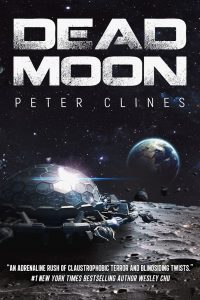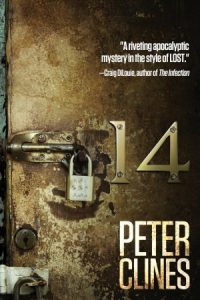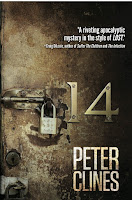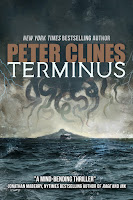Running a little late with this one, sorry. This fall/ early winter’s going to be very chaotic for me.
Last month when I was guest-hosting the Coffeehouse, we talked a bit about word count. Not in the sense of making your word count, but what publishers are generally expecting from books in different genres. Should we be aiming for those points as we write? Or do we just write with the acknowledgment we may need to cut some later?
Since this is something I have some experience with—some very recent, in fact—I thought it was worth talking about a bit more. It’s one of those things where we’re going to dance a little bit between writing and publishing, going back and forth between the art and business sides of the line.
First off, let me be clear up front– you should always write the story you want to tell. Always. Don’t try to chase a trend or guess what some agent or editor might want to see. The thing they want to see is your story, as you wanted to tell it. That’s what gets attention—the story with all that passion and energy and excitement.

For example, let me talk about two of my books. One of them—the one you know—is -14-. It was a wild, crazy story that had been bubbling in my mind for a while. I wrote it out, tightened it up, polished it and sent off the to the small press publisher I was working with at the time. He absolutely loved it. Told me it was one of the best things that’d he’d ever received as a submission and offered me a contract pretty much right then and there.
The other book is the one we just sold last month. If you’re subscribed to the newsletter, it’s the one I’ve been calling TOS. Three different publishers wanted it. And they all loved it. All of them talked about how much the loved the story, the characters, the writing, how it was equally playful and fun and terrifying.
So, let’s be clear. In both cases, the editors/ publishers loved the book I wrote. These book sold because I wrote the book I wanted to write and people could see that passion and excitement in it.
Then… the business aspect of this sets in.
In the case of -14- the small press used print on demand, and that meant there were very solid costs that came come down to specific page counts. One line past this page and the book goes up by X. Go past this page and it goes up by 3X. And the publisher either has to absorb those costs (not great) or pass them on to the customer (also not great). So the publisher loved it, but we had to make some serious cuts just to make the book affordable. No way around it.
And with TOS… well, it’s a book that definitely leans into horror, and most horror books tend to lean on, well, the lean side. Yeah, there’s some big, beefy horror books out there, but two editors—the final two, in fact, who wanted it the most—both made it clear the book was going to have to lose some weight. One thought 20K. The other thought closer to 35K.
Yeah. Scary thought, isn’t it? Happy October!
As a slight aside, I think this is one of those things that makes people say “Big publishers will make you change everything about your book!” And on one hand, yeah, they’re absolutely asking me to change things. Kind of insisting on it, in fact. But they’re not just doing it at random. Remember, they bought my book because they like my book. Why else would they have bought it? But this is definitely a business vs. art thing.
Also please keep in mind—none of this is me saying we can ignore actual submission guidelines. If anything, this is kind of making that case. If somebody doesn’t want to see anything over 100K words and my manuscript’s currently at 135K… well, I’ve got some cutting to do if I want to submit to them.
Anyway…
All this brings me to an exercise I wanted to bounce off you, especially for those folk working on an early draft of a first novel (but it works for everyone, so don’t feel shy). I want you to imagine, right now, you open up your email and you’ve got an acceptance letter. That publisher you sent your book to likes it They love it! They want it, they want to sign you, it’s a done deal. There’s only one catch…

You need to cut 20,000 words out of the book. It has to be shorter. Maybe it’s a marketing thing, a financial thing, a random decision from someone higher up the food chain. But you must lose 20,000 words. They’re willing to sign that big contract with you today, but there’s no negotiation on that point. 20K gone before it can see print.
So, let’s open up our latest draft and take a long, hard look at it.
What can go?
No, come on. What can go? Do we really need all that description? Every one of of those funny dialogue exchange? All that banter? Does Phoebe need that little soliloquy about rediscovering the sanctity of life?
What really happens in that driving chapter? Yeah, Phoebe gets Dot caught up on everything, sure, but the reader already knows all of it. I’m just repeating information, having her re-tell it to Dot. And wouldn’t we probably assume she told her if they just got out of the car an hour and fifty miles later and Dot said “So that’s all of it?”
Do we need Wakko at all? No, seriously. What does Wakko do in this story? He makes some random comments, carries some stuff at one point, has a few funny lines, but does he actually affect the plot or Phoebe’s story in any way? Would anything at all change if we just cut him out altogether?
Be honest– would it? Think hard, because we have to cut 20K words.
I’ve already cut two full chapters out of TOS. Big, full chapters. One was near the end, and it was sort of a fun, pushing-the-conceit-of-the-book bit that also helped show how horribly wrong things had gone. One was closer to the beginning, and it played with another conceit while also… damn, it had one of my favorite passages in the book. One of those bits that was simple but also kind of deeply, under-your-skin creepy. And that might just be gone for good. It’s so situation-specific I’m not sure I could ever use it for anything else. But ultimately, that three-quarters of a page is the only reason this whole chapter exists. Everything else in it is kind of redundant.
So right there… almost 5000 words cut out of the 20K my editor’s asking for.
One more time, I’m not saying we should plan on this—again, write the book you want to write. But it’s worth thinking about. Because no matter who we’re writing for, we’re going to have to edit and tighten cut. That’s a basic part of the process.
And if I’m finding it really easy to cut something out… well, maybe that’s a sign it wasn’t needed in the first place.
Next time, I’d like to talk about that phaser rifle Chekov left on the bridge
Until then, go write.







